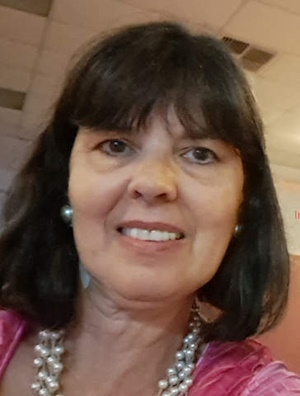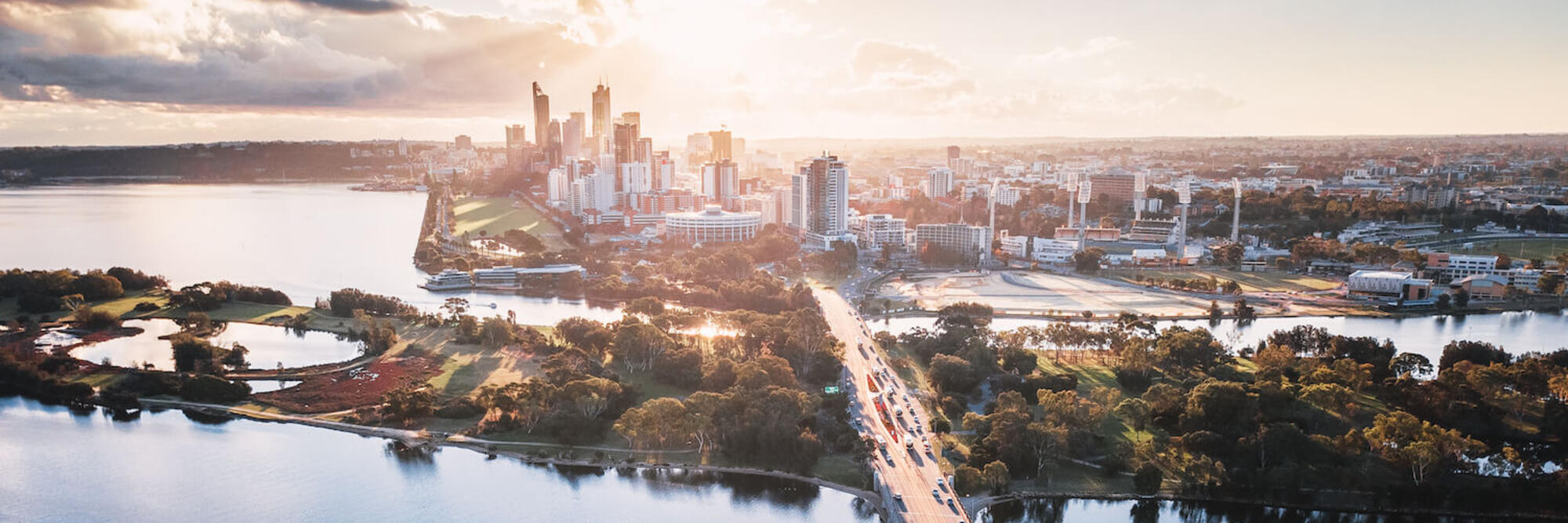Sami has had a few different professions, but she’s been in the medical field for the last 16 years. She loves to travel and meet interesting people. She’s always been artistic and has dabbled in everything from knitting to painting, but her latest venture is up-cycling furniture by painting it.
Follow Sami on Instagram @sami_veloso and check out her blog, COLOURFULWORLD.
About Sami

Q: Where are you originally from?
A: Mozambique
Q: What country and city did you move to?
A: Johannesburg, South Africa; Braunschweig, Germany; Viseu, Portugal; Perth, Australia
Q: When did you move?
A: January 2007
Q: Is this your first expat experience?
A: No
Q: Did you move here alone or with a spouse/partner or family?
A: Spouse and son
Q: Reason for moving?
A: My husband was offered a job.
Living in Perth
Q: What do you enjoy most about your host city and your new country of residence in general?
A: Perth is a beautiful city by the Swan River. I love its relaxed feel, the beautiful beaches, the many parks, the friendly people.
Q: Have you had any low points? What do you miss most about home?
A: I do miss my family and some of my friends; being introverted, I found it difficult to connect with many people, but I have made a few good friends with other expats.
Q: What misconceptions about your host country, if any, have you learned were untrue?
That Australia is always hot! We do have winters too, although Perth winters aren't that bad, actually.
Q: What are the biggest adjustments you had to make when settling into expat life here? Did you experience culture shock at all?
A: The only problem I had at first was understanding people. Even though I lived many years in South Africa and spoke English fluently, the accent here was different, people spoke very fast, and there were lots of different nationalities, each with their own accent when speaking English…but eventually, I got the hang of it, and working with the public, I get to experience lots of different accents on a daily basis and I can understand everybody now.
Q: What are your favourite things to do on the weekend? Are there any particular places or experiences you’d recommend to fellow expats?
A: I’m not much of a beach person, but I enjoy a picnic or barbecue in a park with some friends. King's Park, our botanic gardens, is truly beautiful and the views over the city are just fabulous.
Q: What’s the cost of living in Australia compared to home? Are there specific things that are especially expensive or cheap there?
A: Australia is pricier than Portugal, but then people also earn a lot more here. But strangely enough, cars and petrol are cheaper here, and the houses in some of Perth’s suburbs can be cheaper than in some of the most popular cities in Portugal too.
Q: What’s public transport like in your city and across the country?
A: Public transport is great, always on time too. I use the train into the city once in a while when I need to go into town, as parking can be expensive.
Q: What do you think of the healthcare available in your current country of residence? What should expats expect from local doctors and hospitals?
A: Working in healthcare, I am aware that we have a good health system, even though nowadays it’s getting difficult to get a prompt appointment with a doctor and hospitals are understaffed. Most clinics are private, so they charge for consultations, but you get a rebate from Medicare.
If you need to go into a hospital, the care is free at the public hospitals. It’s optional, but it’s good to have private health insurance to cover dental (quite expensive), optical, physio and other extras that Medicare does not cover.
Q: What’s the standard of housing like in your city? What different options are available?
A: The majority of housing is single houses in big blocks, or in newer suburbs are houses in smaller blocks. Then there are units (smaller houses with tiny gardens), or in the city or inner-city suburbs are apartments. I find the construction of poor quality, with low-quality windows and insulation, but that could be the older houses like the one we live in, which was built in the '70s.
Q: Are there any areas or suburbs you’d recommend for expats to live in?
A: Perth is divided by the Swan River, and people either live 'north of the river' or 'south of the river', and it seems we live in two different cities because Perth is so long (about 120km mainly along the coast). I’ve only lived south of the river, so that is what I’m most familiar with. There are a couple of suburbs that aren’t the best (both north and south of the river), but generally, Perth is a safe city. I would recommend living near a shopping area, and near transport – either bus or train.
Meeting people and making friends in Perth
Q: Was meeting people and making friends easy? How did you go about meeting new people?
A: I found it difficult to integrate with the Australians, but younger friends who had school kids found it easier to make friends with other school moms. Because my son went to University when we arrived, I didn’t have that.
Q: Have you made friends with locals, or do you mix mainly with other expats? What advice would you give to new expats looking to make friends with the locals?
A: My first Australian friends were two work colleagues, but I had to be the first one to invite them to my house. After 16 years, I can say I only mix with 5 or 6 Australians; my other friends are all expats. And it’s not that they aren’t friendly… maybe it’s just me:).
Working in Perth
Q: How easy or difficult was getting a work permit and/or visa? Did you tackle the visa process yourself, or did you enlist the services of an immigration consultant?
A: We came on a Work Sponsorship visa (457, which no longer exists) and were lucky that my husband’s employer sorted out the visas via an immigration agency.
Q: What is the economic climate in the city like?
A: Perth, in the state of Western Australia, is probably the richest state in Australia due to the mining industry. But of course since Covid, the Ukraine war, etc, the cost of living has gone up, the price of house rentals and even house prices have risen a lot, and lending rates have had a dramatic increase. People complain about it, and some people are struggling to keep up. But that is happening all over the world, from what I hear from other friends around the globe. The unemployment rate remains fairly low at the moment, which is quite good.
Q: How does the work culture differ from home?
A: Here, people value family time and self-care time and tend not to work overtime. In Portugal, people work long hours but take many breaks and a long lunch, therefore being less productive, while here they are more productive working less time. I love the fact that people seem to change careers quite easily, sometimes to totally unrelated fields.
Family and children in Perth
Q: How has your partner adjusted to your new home?
A: He adjusted well, especially to the different work culture, which he prefers.
Q: Did your children settle in easily? What were the biggest challenges for them during the move?
A: My son started University here, and he adapted well due to the fact that he spoke English fluently. It wasn’t an easy move for him, being 17 years old, as he left his childhood friends behind.
Q: What are your favourite family attractions and activities in the city?
A: Visiting Kings Park, attending the various free activities, concerts, etc.
Q: What are the schools like? Any particular suggestions?
A: Not too clued-up about schools as I didn’t have school-age kids, but from what I hear from friends with young kids, 99% of public schools are good. There is a yearly school ranking system, and I notice a lot of parents try to move into the suburbs where those schools are so that their kids can attend those schools. Private schools are expensive, but some parents prefer to have their kids study in the private system.
Final thoughts
Q: Any advice you’d like to offer to new arrivals in your current country of residence?
A: Learn English if you don’t know it yet, and try to integrate as much as possible.
► Interviewed October 2023



